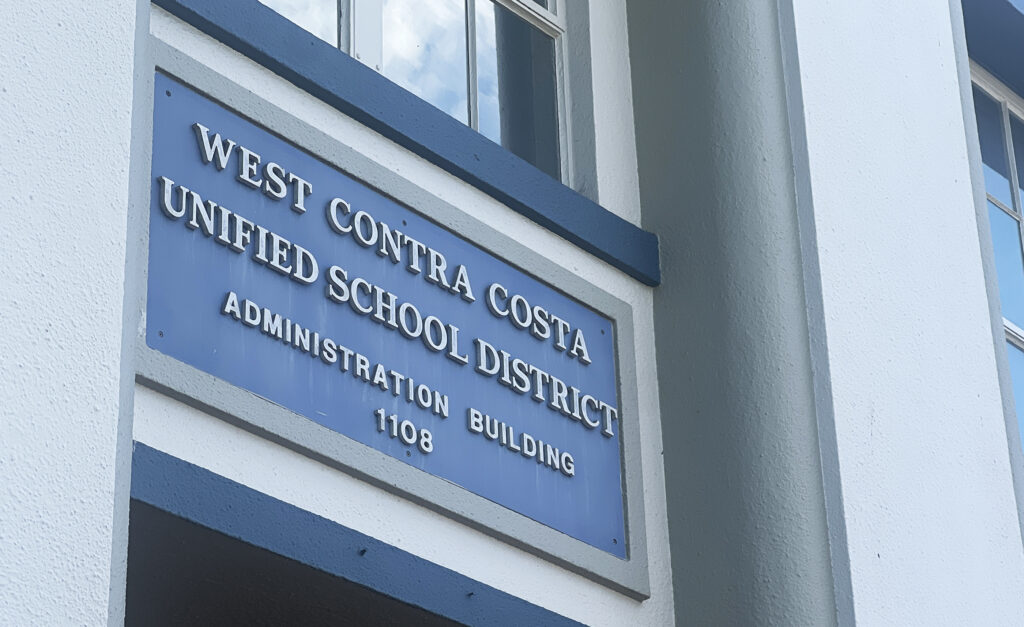
Fresno Unified School District board member Keshia Thomas speaks during a 2022 news conference.
Credit: Fresno Unified / Flickr
Among accusations of racism, intimidation and political play, ensuing from a March 20 decision by the Fresno Unified School District board to interview internal candidates first in the process to hire a superintendent, some district employees have faced harassment and threats, with some members of the Hmong community also citing attacks against them.
Sources, including district spokesperson Nikki Henry, told EdSource that board members and Deputy Superintendent Misty Her — a candidate for the open position and the presumptive interim superintendent — have been threatened. Her, specifically, has faced racial harassment, Henry said.
“It’s not fair to staff, and it’s not fair to the process,” school board member Keshia Thomas said.
During last week’s board meeting, Kao Xiong, CEO of the Hmong Business Incubator Center, a community-based organization serving the underrepresented Hmong community, said his group has been monitoring racial tensions related to the superintendent search.
Community member John Thao spoke about the “painful” and “hurtful” words someone told him in the wake of the superintendent’s search: “‘Your kind will never be superintendent.’”
On Jan. 22, when Superintendent Bob Nelson announced his plans to leave Fresno Unified, the district announced that if a permanent superintendent isn’t named by his final days, Her would be named interim superintendent.
Plans to name Her as interim superintendent put her at the center of the search as a favored candidate even though she’s not the only internal applicant. Her became the highest-ranking Hmong K-12 professional in 2021 when she was hired as deputy superintendent.
Stacy Williams, a community member who spoke at last week’s meeting, accused the board of favoring Her as the next superintendent for their own political gain.
“I know some of you have something to gain by using the Hmong community as your political pawn for when you want to run for something,” Williams said. A similar sentiment had been expressed in an opinion piece on news site GV Wire, which accused some board members of “pandering to the Hmong community for votes” in their November re-election bids.
Process is compromised
After the March 20 closed meeting of the school board, during which the board decided to interview internal candidates before deciding on how to proceed with the hiring process, details of the 4-3 decision and how each board member voted were leaked to the media, instigating community anger that propelled the board to reverse course in a 5-2 vote last Wednesday and postpone the scheduled internal interviews.
Beyond the threats, the search for the top leader of the state’s third-largest school system is engulfed in community angst about an alleged lack of transparency as well as accusations that the process has been tainted by politics.
Simply put, some say the search process has become “compromised.” But the reason for that conclusion varies, depending on whom you ask.
Trustee Thomas said the process is compromised because board members and staff are afraid but helpless to protect themselves and their families from threats and harassment, incited by the turmoil that the leaked information has caused.
“I don’t know what the next steps are going to be because everybody is uncertain, scared and wants to protect their families and protect employees from the nonsense,” Thomas told EdSource before the board voted to cancel the interviews of in-house candidates. “So now, we may have to pivot and try to figure out: how do we stop the unnecessary nonsense?”
Manuel Bonilla, president of the Fresno Teachers Association, on the other hand, said the process was compromised from the moment the board decided to prioritize district employees rather than conducting an “extensive search to find the best candidate … creating the appearance that politics matter more than students.”
Fifteen community members who spoke at last Wednesday’s board meeting agreed that politics has permeated the process one way or another.
“Is this politics as usual?” asked Terri Kimber-Edwards, who attended Fresno Unified schools, is a parent to former students, and was a teacher and school and district administrator. “Is there some agenda? Are there backroom deals?”
Accusations of a personal or political agenda
A recently launched political action committee, Moving the Central Valley Forward, sent mailers to Fresno residents, asking them to run for a seat in the Roosevelt and Hoover High areas, represented by Elizabeth Jonasson Rosas and Claudia Cazares, who are up for re-election in November. Both trustees’ names were leaked as part of the board majority that voted to start the superintendent search with internal candidates.
Jonasson Rosas did not confirm or deny her part in the March 20 decision because it happened in a closed-door session, and Cazares could not be reached for comment. Both have since voted to cancel the internal candidate interviews. In fact, Cazares led the charge to change the scope of the search at last Wednesday’s meeting.
Board member Andy Levine, who represents the Fresno High area, is also up for re-election but was not included in the mailer, although the area is listed on the political action committee’s website. Last week, Levine stated on Facebook and told EdSource that he supported opening the search to both internal and external candidates from the start.
Board members are not the only ones being accused of having a political agenda in the superintendent search.
Thomas, who says she stands by her decision to interview internal candidates first, questioned the teachers union’s involvement in the April 2 news conference called by board President Susan Wittrup to challenge the board’s decision.
At that news conference, community leaders, including members of the teachers union, urged Fresno Unified board members to conduct the search the “right way,” with a scope that includes at least statewide candidates, and in an open and transparent way, led by and with community involvement.
Thomas said the labor union’s top leaders want to apply for the superintendency, which they couldn’t have done under the board’s original plan to interview internal candidates first.
District leaders, principals, teachers and other staff would be considered internal candidates who could apply.
Union presidents are district employees and could have applied; however, other union leaders and representatives would not have been able to unless the search was expanded to include external candidates.

The teachers union’s executive director, Louis Jamerson, said he’ll apply to be Fresno Unified’s superintendent if the process is opened to external candidates, but added that questions about the union’s involvement in the search process are “ridiculous.”
The union’s executive board endorses Jamerson’s plan to become superintendent and Bonilla, FTA president, as deputy superintendent.
“We have some support from our executive board and from our teachers to pursue this,” Jamerson said, referring to his public announcement in February to 200 educators who gave him a standing ovation.
“But that assumes that that’s possible. I don’t know, ultimately, how the board is going to decide on this process,” Jamerson said. “There could be another hurdle that prevents me from being able to apply. But if there are no hurdles, in terms of the ability for me to apply to become the superintendent, I will apply.”
FTA involvement isn’t unique to this search
The teachers union has been involved in the superintendent search process dating back to 2005, when Mike Hanson was hired, and 2017, when Nelson was selected.
Jamerson said that ensuring that the right superintendent is selected isn’t the only action the union takes to improve the education of students in Fresno Unified, where most students are still not meeting state standards.
“In my almost 10-year tenure at FTA, we have been involved in trying to do our best, from where we are, to try to … move this rock up a hill in terms of our students: our student safety, our student academic outcomes, our students’ ability to learn, read, do math — all of that,” Jamerson said about work the union engages in.
In April 2022, the teachers union proposed classroom-centered ideas for academic and social-emotional student support. Contract negotiations — as well as a strike threat — in 2023 led to multimillion dollar investments in students’ social-emotional support.
What does this mean moving forward?
Trustee Jonasson Rosas said the situation is causing uneasiness at the district’s many schools, where students are now preparing for testing and other end-of-year obligations, such as college applications. Students who spoke during the April 3 meeting confirmed their worry.
“It’s unsettling for our school sites,” Jonasson Rosas said, “and I’m concerned about the effects that our schools are having because of this.”
Edison High senior Yunah Vang was one of seven students who stood at the podium during last Wednesday’s meeting, though not all spoke.
”Instead of preparing for my graduation or getting ready for my prom, my classmates and I are here addressing issues that we are supposed to trust adults with,” Vang said.
But regardless of how the search unfolds, the next superintendent must address the district’s struggles with student performance, including children’s ability to read and teens’ college readiness.
Based on the California Assessment of Student Performance and Progress, or CAASPP tests, most Fresno Unified students failed to meet the state’s standards in 2023: 66.8% failed to meet English language arts standards, and 76.7% failed to meet math standards.
For third grade — the school year believed to be pivotal in determining reading proficiency and predicting future success — less than 1 in 3 third-graders are at grade level, a GO Public Schools 2023 student outcome report on Fresno Unified showed.
Of high school seniors in Fresno Unified, according to the report, under 20% are ready for college courses in English while less than 5% are ready for college math courses. College readiness is defined by a student exceeding standards on the 11th grade standardized tests.
It’s still unclear how the superintendent selection process will proceed. It’s possible that the board will update the community about the next phase of the process at its meeting on April 10.
Many are wondering whether qualified candidates will risk applying and being part of a process that has questionable community support or to work under a fractured school board. EdSource found that less experienced superintendents are becoming common across the state as there is a rise in superintendents leaving the job; many who are leaving cite threats, stress and politics.
“Interested candidates are going to be looking at the process thus far,” said Henry, the district’s spokesperson. “They’re going to be looking at how the board operates, how district leadership operates, how our schools operate. They’re going to take a deep dive and decide if this is the right fit for them, so I think it’s yet to be seen if this has a positive or negative impact on a wider search.”
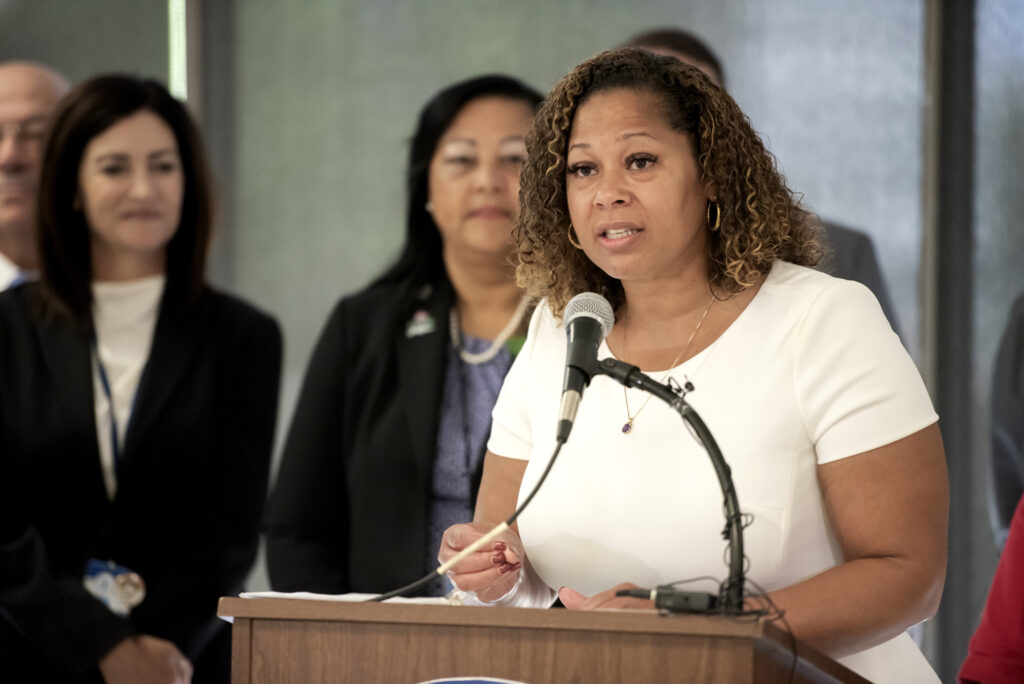
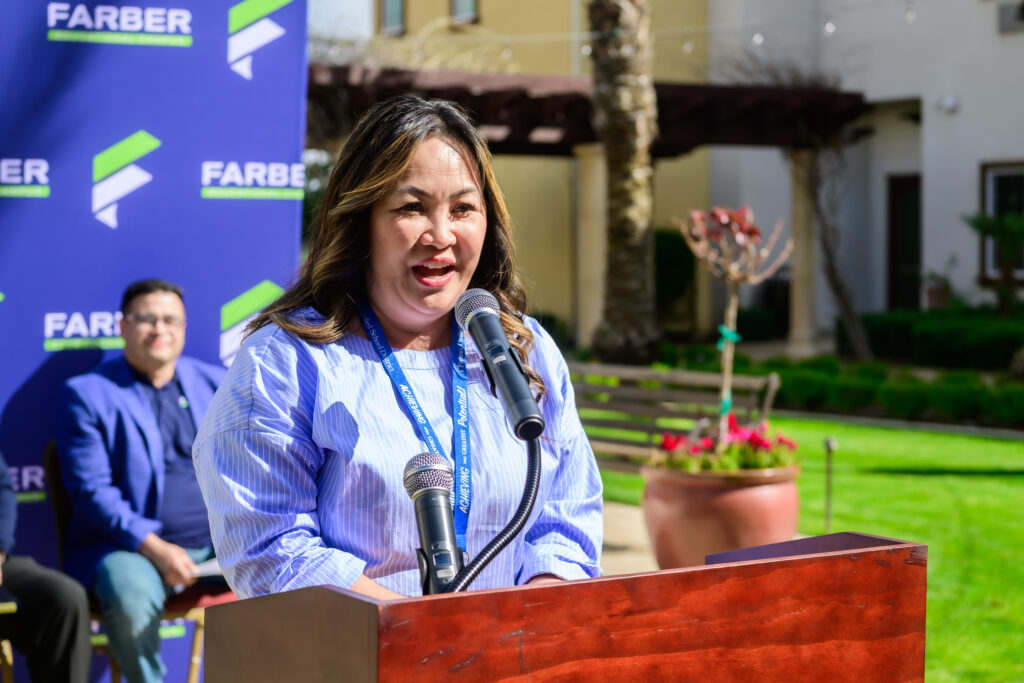

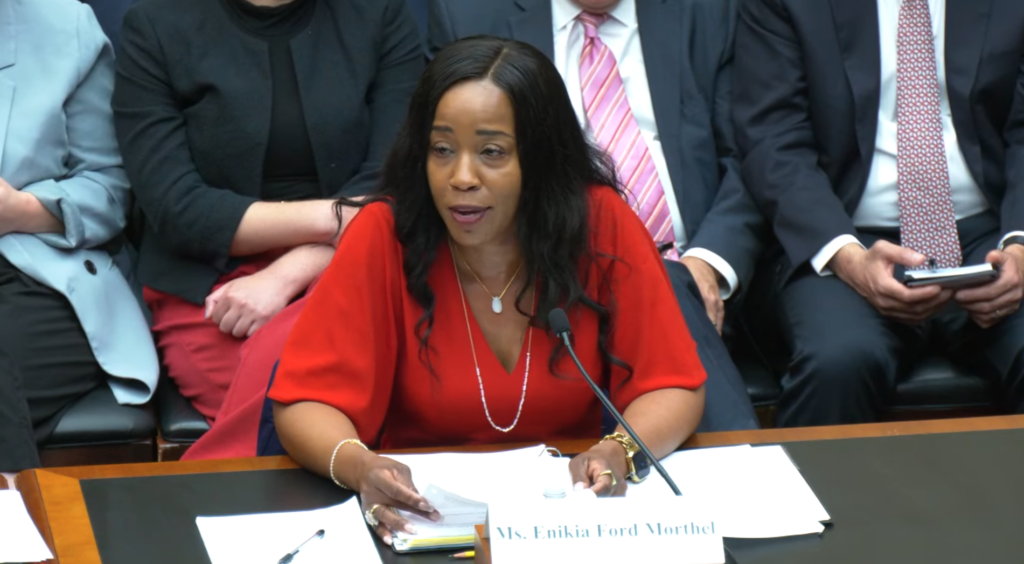





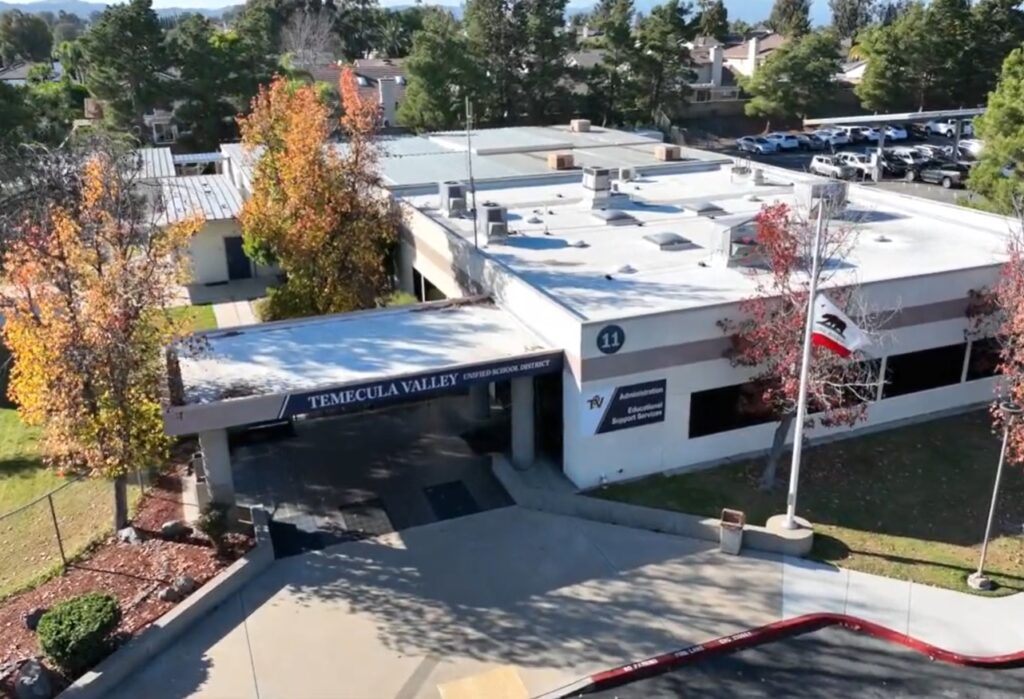
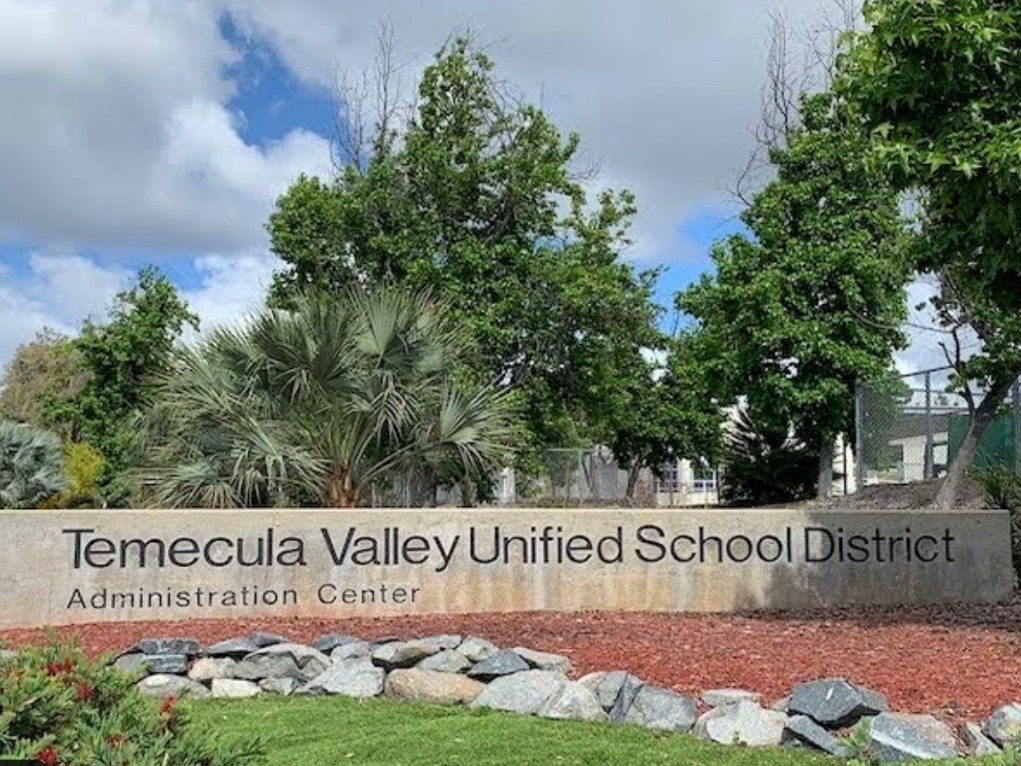
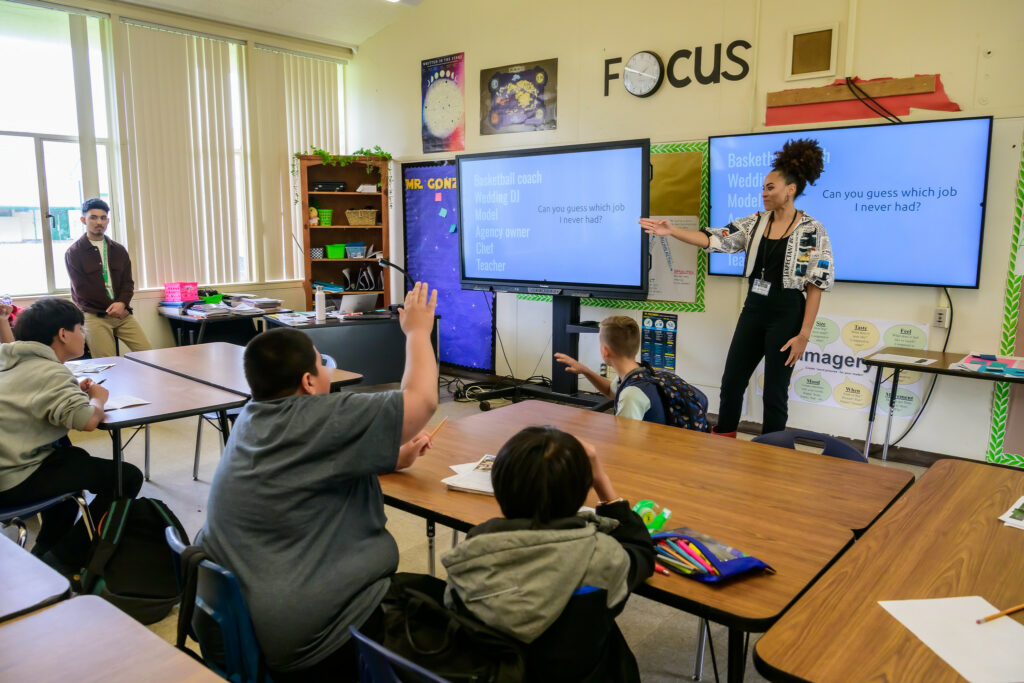

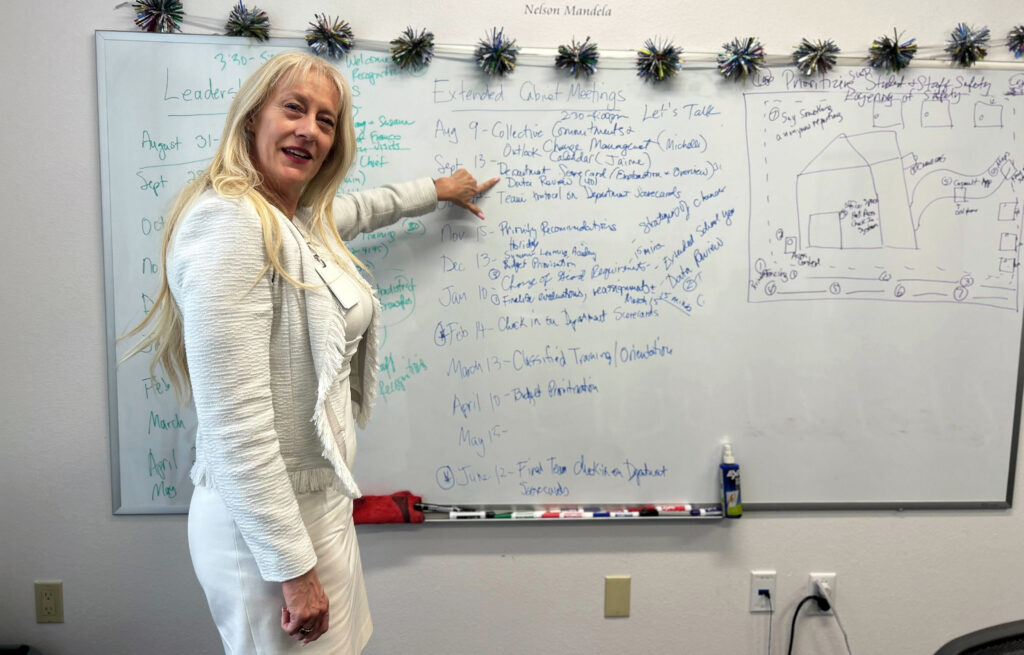




)
)
